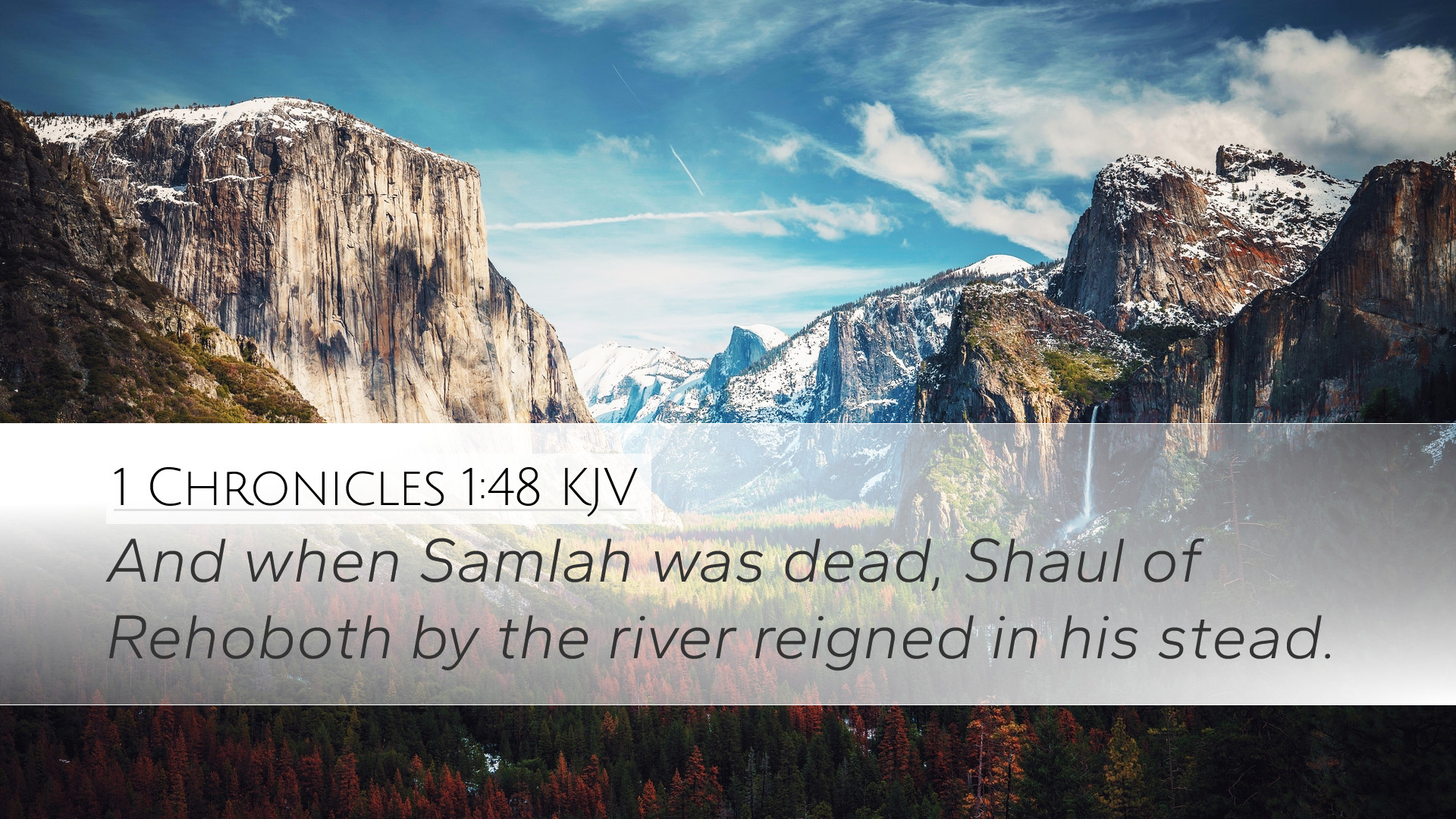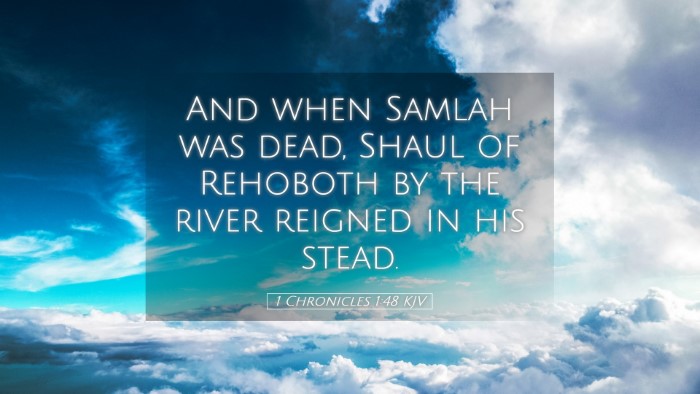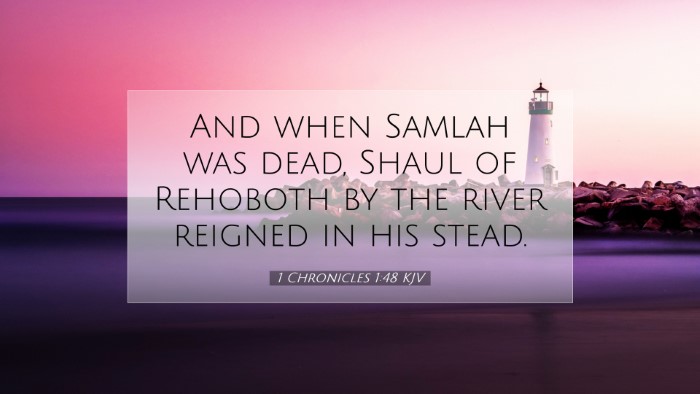Commentary on 1 Chronicles 1:48
Verse: "And when Shaul was dead, the house of Judah had chosen me king over them." - 1 Chronicles 1:48
Introduction
The first book of Chronicles primarily outlines the genealogies of Israel with a focus on the tribe of Judah and David’s lineage. This particular verse highlights the leadership transition following the death of Shaul (King Saul), which is pivotal for understanding Judah’s role in Israel's monarchy and the divine plan for the Davidic line.
Historical Context
This verse places us in a critical historical moment where the kingdom of Israel is transitioning from the leadership of Saul to that of David. Such leadership shifts are crucial in understanding the political and spiritual dynamics among the tribes of Israel.
-
Matthew Henry's Commentary: Henry notes the significance of this verse as it marks the end of Saul’s reign and the rise of David. He emphasizes how David’s acceptance as king by Judah not only signifies a political transition but also aligns with God's divine will, marking the beginning of a theocratic rule.
-
Albert Barnes' Commentary: Barnes discusses the complications surrounding Saul’s death and how it led to various factions within Israel. He points out that Judah’s choice of David signifies God's election and the preference of the southern tribes, which foreshadows the future united kingdom under David's reign.
-
Adam Clarke's Commentary: Clarke elaborates on the spiritual implications of this passage. He argues that David being chosen by Judah is not just a matter of tribal politics but part of the fulfillment of God's promise to David. Clarke enhances the reader’s understanding of the divine providence in establishing David as king.
Theological Implications
The transition of power expressed in this passage brings forth significant theological themes that are relevant for modern readers, including pastors and theologians.
-
The Sovereignty of God: This verse underscores God’s sovereign choice in appointing leaders. As seen through the line of Judah, the selection of David symbolizes God's control over Israel’s history and His commitment to His promises.
-
The Role of Judah: Judah's choice of David can serve as a symbolic representation of true leadership and righteousness being favored by God. The tribe of Judah becomes the vessel through which the messianic line continues, making this choice immensely significant in biblical theology.
-
Transition and Change: The passage also reflects on the nature of transition within leadership. It highlights that even in the wake of loss, such as the death of Saul, God’s plan prevails through the establishment of David, which offers hope and a reminder of God's continuous presence in times of change.
-
Human Agency: The human choice of David by Judah emphasizes the partnership between divine providence and human agency in the unfolding of God’s plan. It showcases how God uses human actors to realize His promises.
Practical Applications
This verse can inspire numerous practical applications for believers today, encouraging them to reflect on the following:
-
Trusting in Leadership: As David was chosen amidst turmoil, believers are called to trust in God’s sovereignty over their leaders today, acknowledging that God is at work even in challenging contexts.
-
Responding to Change: This verse encourages individuals to respond positively to necessary transitions in life, knowing that they can lead to the fulfillment of God's greater purpose.
-
Seeking God’s Will: Just as Judah sought divine guidance in their choice of leadership, today’s believers are prompted to seek God’s will in decision-making processes, particularly regarding leadership within the church and community.
-
Understanding Kingdom Leadership: David’s selection serves as a model for what kingdom leadership should embody: righteousness, humility, and obedience to God’s will.
Conclusion
1 Chronicles 1:48 encapsulates a moment of critical transition in Israel’s history, signifying not just a change in rulers but the unfolding of God’s divine plan through David. As revered commentaries illustrate, it enhances our understanding of divine sovereignty, the importance of human choice, and the enduring impact of biblical narratives on contemporary faith practice. For pastors, students, and scholars alike, engaging with this verse offers rich insights into leadership, community dynamics, and the ever-present guidance of God within the narrative of His people.


